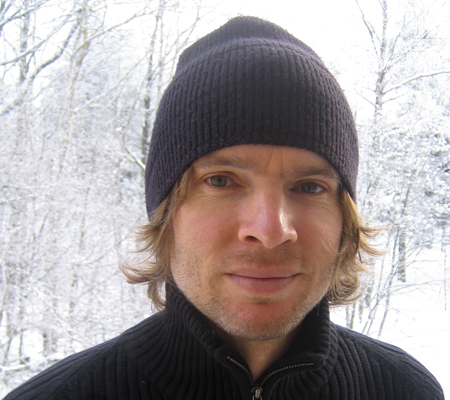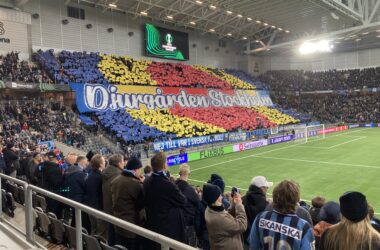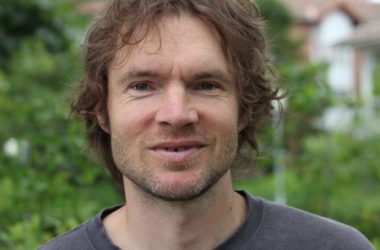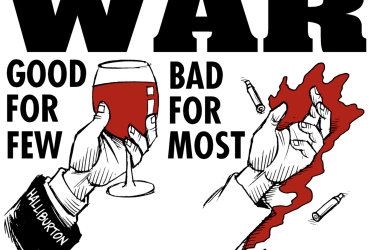By Gabriel Kuhn
In the summer of 2014, I was contacted by a fellow from St. Petersburg who was working on a book about sports and politics. He wanted to do an interview about Soccer vs. the State: Tackling Football and Radical Politics. I replied to his questions by email. Over the following years, I was reassured that the Russian book would be out soon. Eventually, contact came to a halt. With the new edition of Soccer vs. the State ready to be shipped, I decided to publish my answers here.
What was the goal you set before starting to work on Soccer vs State? What was the result?
I think you have to go back to the origins of the book in order to answer these questions. In 2005, I wrote a pamphlet called Anarchist Football (Soccer) Manual, which I distributed through Alpine Anarchist Productions, a DIY publishing outfit I had founded a few years earlier. I got the idea for the pamphlet after I had attended various anarchist meetings and gatherings in the US in the early 2000s. Many people there seemed to really enjoy playing football, but it seemed that very few of them knew much about the game and its history. Maybe it was European snobbishness on my part, but growing up in Austria I had always been passionate about football, both as a player and a spectator, and I felt I should write something about soccer’s social and cultural significance that radical soccer fans in the US might find useful.
The pamphlet became quite popular, and when I started working with PM Press in 2007, we decided to do an updated and extended version as a book. So I revised the text and added various documents, interviews, articles, and images in order to explore certain themes more deeply and give the project a stronger international scope. This is what turned into Soccer vs. the State.
I guess the main goal with the book was the same I had with the pamphlet: to provide radicals who love football with relevant information about the history, politics, and culture of the game. At the same time, the ambitions with a book are higher than with a pamphlet. Soccer vs. the State is still an introduction of sorts, but I would like to think that it contains information that is news even to the seasoned radical football fan. The chapter on grassroots football, for example, or the interviews about soccer in Africa or Oceania are far from common knowledge even in radical football circles.
What was the result? Most importantly, I got in touch with many great people who are interested in similar issues and who are active in alternative football clubs or radical supporter groups. Many of these contacts were already established when I was working on the book, and plenty more followed after its release. Writing can often be a rather isolated experience, so this was something I greatly appreciated. The book has also been translated into Japanese, and a Portuguese edition was released during the World Cup in Brazil, which I got a kick out of. There is also a French book based on Soccer vs. the State, and individual chapters have been translated into Polish, Italian, and German. Since I mentioned the international scope I wanted to give the book, it will come as no surprise that I’m very happy about the positive international reception.
In your book we can find stories about football players with left-wing or socially-oriented attitudes. Socrates, Ippig, Lucarelli, and so on. Do you know any players of our days who can be in this series?
I’ve been thinking about this for a few days now (ever since I got your question), and I really can’t think of anyone. I guess Lucarelli and Oleguer were the last outspoken leftists among prominent professional players. My theory about the lack of such players is that the professional football environment has no place for them. Either they are weeded out as rebels and troublemakers early on in their careers, or they quit because they can’t cope with the authoritarian structures, the political hypocrisy, the corporate involvement, and the ever-present bigotry. Hence, you end up with many players who simply follow the rules, and then with some who might satisfy the public’s and the media’s need for “bad boys”, such as Mario Balotelli, Zlatan Ibrahimovic, or Kevin-Prince Boateng, but who, despite being interesting and even inspirational characters, resemble self-centered rock stars more than political agitators.
Sport, especially football, was a weapon to subdue the working masses 100 years ago. Today all the same. TV screens with green football grounds help to fight the monotony of everyday life. Do you agree with this?
There is no denying that football serves as an opiate of the masses. It’s one of the strongest such opiates. In this sense, leftist critics of sport – from Terry Eagleton to Noam Chomsky – are right. But being an opiate is not the only quality that football has. Football is also beautiful and artistic, it encourages social learning, collaboration, and sportsmanship, and it gives people joy and pleasure. Furthermore, football attracts masses, and masses always become a threat to rulers when the latter lose control over them. Under the right circumstances, football can play an important part in people’s uprisings, just as it can be a tool of oppression under the wrong circumstances. Many examples have confirmed this, from the role of football in apartheid South Africa to soccer-celebrations-turned-anti-government-protests in Iran to the involvement of Ultras in the Arab Spring.
What is modern football for you?
I mainly associate the term with the hypercommercialization of the game: kick-off hours that serve the interests of TV stations rather than those of fans; stadiums that look like shopping malls; outrageous salaries and transfer sums; overpriced merchandise, and so on. From that angle, I’m all behind the slogan “Against Modern Football”. What’s problematic with the slogan is that it evokes the image of a romantic football past in which everything was better. That is not the case. Certain things might have been better – for example, a collective working-class experience and a closer relationship between players and fans – but not all. The traditional football audience was also predominantly male, sexist, homophobic, and often racist. This is nothing we need to bemoan.
The problem is not that things are changing in the world of football; the problem is how they are changing and at what cost. Having a more inclusive audience is fine. But it doesn’t justify alienating football’s traditional supporter base that, after all, has turned football into what it is today. For the sport to remain the people’s game it needs to be changed by the people, not by businessmen and their administrative cronies.
Who are the main killers of football?
People who have no or only very little interest in the game beyond making money off of it: media moguls, billionaire owners, corporate sponsors, and the like. But also the players, club officials, and regular fans who jump through the hoops and make no effort to stop these shenanigans.
We saw big protests and riots in Brazil before and during the 2014 World Cup. But we haven’t seen similar protests and general disconnect in Russian society during the 2014 Winter Olympics in Sochi, even though they were more corrupt and more expensive. Why?
This is a tough question to be asked by a Russian editor. I will be walking on very thin ice here, since the readers of your book will know much more about the situation in Russia than I do. All I can give is an outsider’s perspective – the readers will have to decide how much sense it makes.
Basically, I believe that we have been witnessing one of the ironies of the nation-state reality: the more liberal a state is the stronger the protests on the streets can be, since they are met by less repression and imply fewer risks. The Sochi Games would have deserved the same protests as the World Cup in Brazil – perhaps even stronger ones – but it seems that the Russian government keeps a close watch on the country’s population and tries to crush any resistance at the moment of its inception. In other words, the protests in Brazil proved perhaps that, despite all of the problems in the country, there is at least more space for political action than in Russia. Or perhaps the answer to your question simply is that no one wanted to protest in Russia – but, as I said, your Russian readers will have a much clearer picture of this than me.
In any case, it is quite likely that concerning big sports events we will see a development similar to that of WTO or G8 summits: the events are moved to places with levels of security high enough to keep any mass protests from emerging. The next two Men’s Football World Cups will be held in Russia and Qatar. This fits the picture. And it requires resistance movements to be creative. Then again, in these cases it might not be so difficult to be creative: We are talking about World Cups, so why shouldn’t the protests be worldwide?
Do you remember your first football match? I mean like a visitor in the stadium.
Actually, no. I must have been very young. I grew up in a small village along the Austrian-German border and saw a lot of amateur games as a kid. The stadiums I went to where in Innsbruck, where my grandfather took me to see Wacker at the old Tivoli, and in Munich, where my uncle would take me to Bayern games in the Olympic Stadium. Today, both teams have moved to new arenas lacking any soul or character. It’s a sign of the times.
Have you ever criticized the fact that sport is not anarchic, that all tournaments lead to competition? In other words, sport is weapon of capitalism.
I’ve had plenty of discussions about this. In fact, it was a Russian fellow who really stressed this fact when I talked about football at the Baltic Anarchist Meeting in Tallinn in 2012. He was adamant that football could never be emancipatory because it always implied competition. I suppose I have a more relaxed attitude. Testing one’s abilities is a very natural thing for humans to do, and one way of doing this is to compare your abilities with those of others. You only know whether you’re a fast runner or not if you run alongside other people. That’s already competition.
Likewise, most of the games we play derive their enjoyment from competition. Knowing that you can win or lose is what makes them exciting. Take a game as simple as rock-paper-scissors. It would not be very satisfying to shape your hand in the form of a rock, paper, or scissors if it wasn’t for beating an opponent. But I think such forms of competition are rather harmless. They simply add a bit of entertainment and diversion to our lives.
The far bigger problem than winning and losing is the status attached to it. This is where a capitalist mentality really kicks in. Winners gain wealth, power, and admiration, while losers remain poor, have no access to power, and are ridiculed. Everything is infected by this, and it corrupts the fairly innocent nature of competitive games. Let’s return to playing rock-paper-scissors: Suppose the subway is late and we play a few games with a friend while we’re waiting. We probably have a bit of fun and time will pass faster. But do we even remember who won once we sit on a subway train? Will anyone give us a better job because of it, put our photo in a newspaper, or offer us a million-dollar advertising contract? No. And that’s how it should be with all games. Football included. Once winners receive no particular social rewards and losers no particular social punishment, competition in sports is no major problem. It’s only a simple element of playing games.
What is the most interesting DIY-football project that you have seen?
Such questions are always difficult to answer because by mentioning one project you’re doing injustice to all the ones that are left unmentioned. There must also be plenty of great projects that I have never heard of. But, personally, I have always been very impressed by the Easton Cowboys and Cowgirls of Bristol. They’ve been around for a long time, are involved in various great social projects, and have a very good standing in their community. They’ve been a huge inspiration for the alternative sports club 17 SK that we founded in Stockholm a few years ago. It is a much smaller project but based on similar principles. I’m getting a lot of joy out of it.
Interview conducted August 2014. Posted December 2018.
More blogs from Gabriel | Back to Gabriel Kuhn’s Author Page






